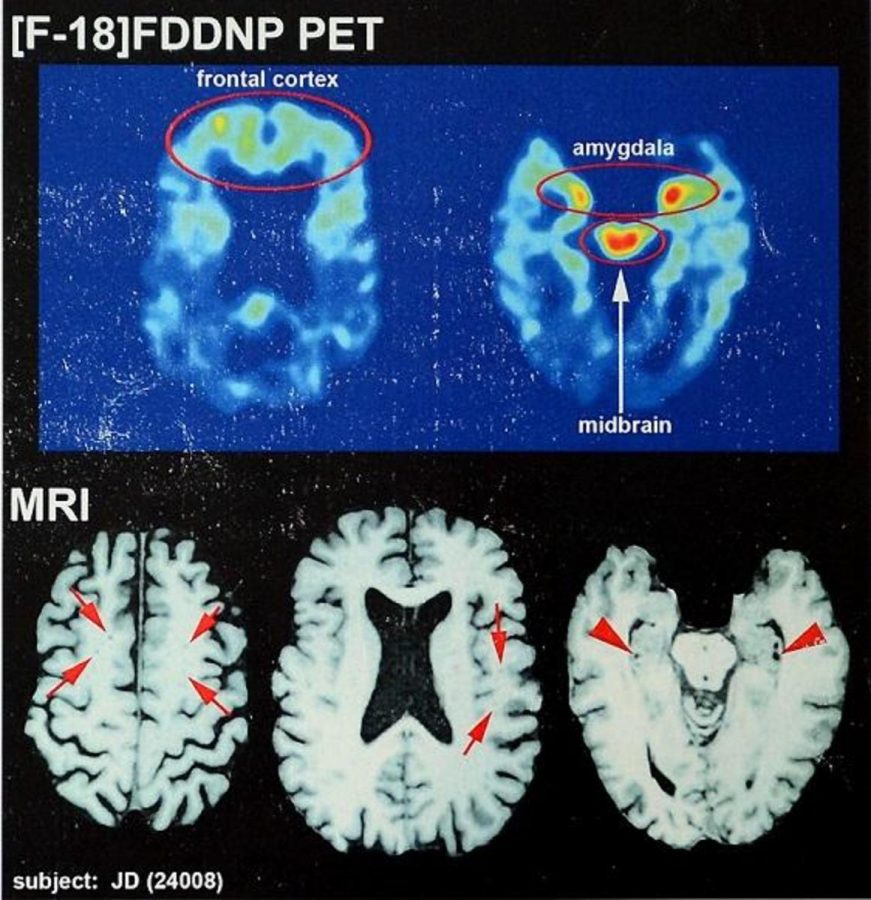Brain diseases found in former NFL players
Recent brain scans of NFL hall of famer Joe DeLamielleure show CTE. This brain disease affects hundreds of football players over the years. CTE was first introduced as a major concern in the 1920s.
October 8, 2015
A recent study challenged the safety of American football. Its results raises questions about the safety of contact sports played at the high school level.
Out of 91self-selected formal NFL players who donated their brains for research, 87 players were found positive of chronic traumatic encephalopathy (CTE), according to the U.S. Department of Veterans Affairs and Boston University.
CTE is a progressive degenerative brain disease that is caused by repeated concussions. Clinical symptoms of CTE are only now beginning to be understood. They are thought to include changes in mood, cognition, behavior, and, in some cases, motor disturbance.
Concussions are now seen as traumatic brain injuries. They should be diagnosed professionally, but according to Concussion Legacy Foundation, only 1 in 6 concussions are diagnosed.
Freshman Yuhi Hakozaki said, “People with concussions are going to have a difficult time later in life. I think it is also the responsibilities of families and friends to encourage them to be diagnosed.”
This new statistic about brain diseases in NFL players raises concerns for high school students who engage in contact sports such as American football, soccer, lacrosse, wrestling, and hockey.
The brains of high school students are still going through the developmental process. For this reason, the effects of concussions are more devastating for them, increasing their chances of receiving chronic brain diseases.
Freshman Takezo Kelly said, “I am scared of concussions because they can lead to motor disturbance which probably and most certainly eliminate some or all fun from my life.”
This may seem like a disturbing fact for sport players; however, this should not discourage high schoolers from playing the sport.
NFL chief health and medical adviser Dr. Betsy Nabel told CNN, “I think what is critical is to know how to play the game right, knowing how to play the game safely.”
“If you know how to recognize the injury, then you are going to play the game as safe as possible.”



![Mock Trial members from Gold and Green team last year pose for a picture in front of the OCLRE building in Columbus. "We all put in so much work [last] year. I know [this] year we’ll come back improved and ready to win!” said Ogunbodede.](https://shsleaf.org/wp-content/uploads/2025/10/IMG_4121-300x205.jpg)



